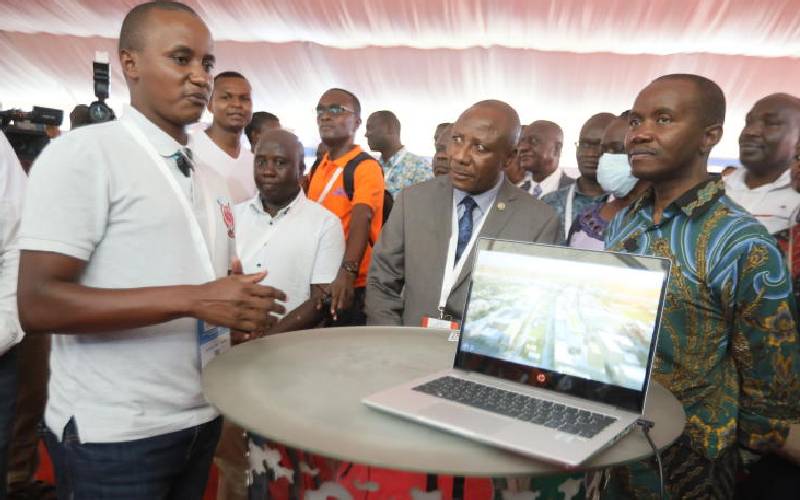
The government has unveiled a plan to spend Sh585 billion in Kenya’s Information and Communication Technology (ICT) sector over the next 10 years.
According to the Kenya National Digital Master Plan 2022-32, about Sh17.3 billion will be required this year alone for the digitisation of government records and the building of the information technology infrastructure.
“The 10-year master plan will guide the country on developments in the ICT sector and investments,” said ICT Cabinet Secretary Joe Mucheru during the unveiling of the policy at the Connected Kenya Summit 2022 in Kwale County.
“It also outlines the structured roadmap on the delivery of ICT infrastructure and services, development of ICT skills and provides guidance on investment priorities to both local and international investors,” he said.
According to the plan, Sh5 billion will be spent on the digitisation of government records while Sh800 million will fund a digital skill gaps survey across 10 sectors.
“We need to overcome the current skills shortage within the region and, therefore, need to develop better ways of ensuring that the supply of trained people matches industry demand,” said Mr Mucheru.
The bulk of the expenditure (Sh405 billion) will, however, go towards the building of infrastructures such as fibre broadband rollout, new data centres and community networks.
The master plan has set a target of building 52,000km of the National Optic Fibre Infrastructure (NOFBI) for public institutions, including schools and hospitals as well as 48,000km for homes, businesses and rural centres.
As part of the infrastructure development, Sh1 billion will be spent within the next year to create a redundancy gateway for The East African Marine Submarine cable (TEAMS) and another Sh500 million to upgrade its capacity.
The plan will also see the installation of 25,000 internet hotspots in rural areas and other public places with Sh17 billion budgeted for 4500km of fibre for Nairobi and County Metro by 2024.
This is expected to provide all the ministries and State department buildings with reliable connectivity and achieve interconnectivity between the State offices.
The Ministry of ICT says the funding will be raised from a mix of annual exchequer allocations as well as development aid sourced from bilateral and agency donors.
The ministry will also work with the National Treasury to consolidate the public ICT budget into one vote to fund the master plan.
The government will also spend Sh45 billion on the digital literacy programme over the next 10 years.
This will fund the production and supply of laptops to upper primary schools, cloud infrastructure for learning materials, teacher capacity building, school networks, digital learning materials, and the National Education Management Information System (Nemis).
Start-ups working in the technology sector will also have access to a Sh500 million development fund over the next four years that will also be channelled through innovation hubs.
The government will also create a digital assets framework to support government registries as the basis for distributed ledgers to support access to credit and financial facilities.
Some Sh2 billion has been set aside for this over the next eight years and another Sh2 billion to deploy the internet of things (IoT) framework for tracking government sectors.
It will also be used for the provision of a secure application programming interface (API) to home-grown independent software developers and vendors to create business productivity applications for emerging technologies.
 The Standard Group Plc is a multi-media organization with investments in media
platforms spanning newspaper print
operations, television, radio broadcasting, digital and online services. The
Standard Group is recognized as a
leading multi-media house in Kenya with a key influence in matters of national
and international interest.
The Standard Group Plc is a multi-media organization with investments in media
platforms spanning newspaper print
operations, television, radio broadcasting, digital and online services. The
Standard Group is recognized as a
leading multi-media house in Kenya with a key influence in matters of national
and international interest.










